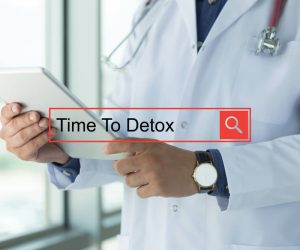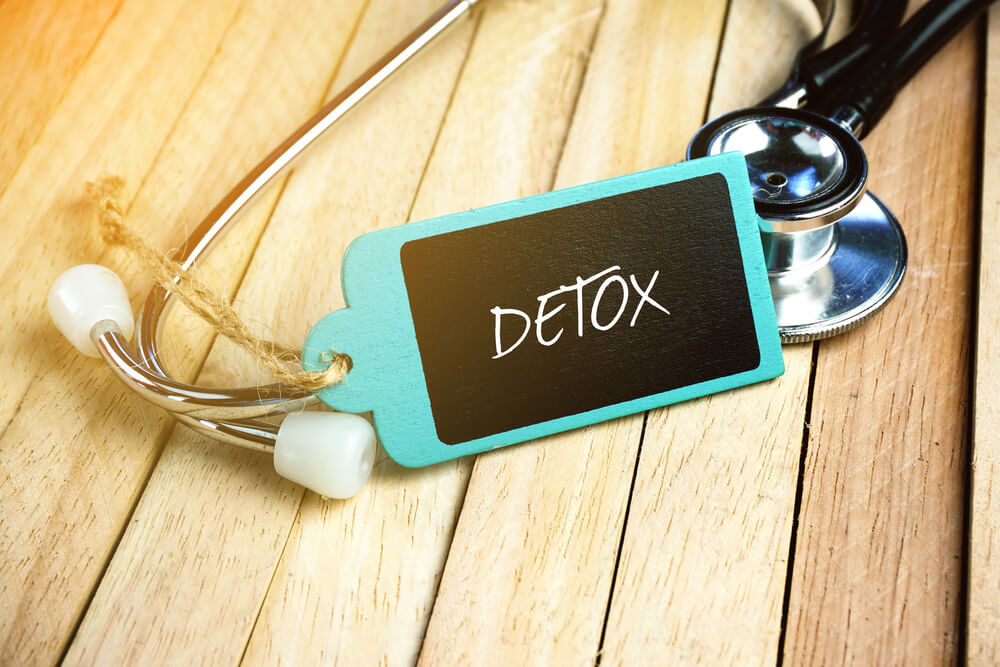What Is Medical Detox? How it Works in Addiction Treatment

What Substances Require Medical Detox?
The first question to answer is “What is medical detox?” Medical detox is a type of detoxification program that has been developed, offering a safe way to manage withdrawal symptoms for a person who is quitting drug and alcohol abuse, allowing their body to clear out the toxins left by these substances in a first step to sobriety after addiction.
In a medical detox program, patients are given the medical treatment and oversight needed to heal from substance abuse. Often, a medical detox center will have doctors, nurses, or nurse practitioners onsite or on-call 24 hours a day to ensure nobody suffers ill health effects as they detox their body.
Prescription medications may be used to help keep patients comfortable as the drugs and alcohol leave the body because withdrawal symptoms can be painful, harsh, and distressing. Without a safe medical detox program, many people will return to substance abuse rather than deal with the pain and discomfort of withdrawal.
Substances that often require a medical detox program include:
- Alcohol
- Opioid drugs including heroin and prescription pain medications
- Benzodiazepine drugs
Without a safe, medically managed detox from these substances, withdrawal symptoms can harm a person’s health and even result in serious death.
Medical Detox for Alcohol: How it Works
Unbeknownst to many, alcohol is one of the most dangerous substances to quit once an addiction develops. The chemical changes it causes in the brain can lead to serious withdrawal symptoms that can cause seizures, hallucinations, and deadly delirium tremens.
Dealing with bio-medical complications, chemical dependency, and psychological addiction requires a full spectrum of care and treatments far beyond simply putting down the glass. In a medical detox plan for alcohol detox, patients will live inside a safe, comfortable, and 100% sober residence away from the temptation to drink. They will often live in a shared residence or sometimes a private room, eat healthy food and spend 5 to 10 days on average working through the sometimes difficult stages of detox, with the care and oversight of medical professionals.
Detox from alcohol can sometimes result in withdrawal symptoms that include:
- Anxiety and mood swings
- Increased heart rate
- Difficulty sleeping and nightmares
- Tremors
- Uncontrollable sweating
- Confusion and brain fog
- Irritability
- Headaches
You may also experience serious alcohol cravings and flu-like symptoms. Delirium tremens (DTs) are dangerous and difficult withdrawal symptoms that can occur suddenly during alcohol withdrawal, like:
- Confusion
- Agitation
- High fever
- Auditory, visual, and tactile hallucinations
- Seizures
- Death
With prescription medications, doctor’s care, therapy, counseling, and holistic treatments, patients do not need to suffer from these symptoms. Staying comfortable and safe in these difficult times will lead to a more effective treatment program that patients are more likely to stick with, moving on to a customized rehabilitation program once they are physically stable enough to do so.
Learn tips on how to get crack out of your system here:
Medical Detox for Drugs: How it Works
A medical drug detox program is similar to an alcohol detox. In drug detox, you will have 24-hour care, with prescription medications provided as needed to help you through withdrawal symptoms including:
- Confusion
- Anxiety and paranoia
- Irritability and agitation
- Depression with suicidal ideation
- Fatigue
- Insomnia
- Nausea, vomiting, and diarrhea
- Sweating
- Flu-like symptoms
- Muscle aches and joint pain
- Hunger or loss of appetite
- Trembling and tremors
- Dilated pupils
- Seizures
- Serious drug cravings
Sometimes a longer-term medication management program is needed, with medication-assisted treatment (MAT) programs helping people with opioid use disorders to slowly taper off their opioid use through appropriate long-term prescriptions as deemed necessary by their doctor.
What to Consider Before Beginning Medical Detox
Some of the things you will want to think about before going into a medical detox program are:
- Taking care of things at home, as you could be away from the house and work for up to two weeks as you detox. Most detox programs take 5 to 10 days, but each person is different, so it is better to plan ahead. Take a medical leave from work, ensure your bills are on autopay, arrange for childcare, etc.
- Look into your insurance coverage. Many health insurance plans will cover some or all of your medical detox costs, reducing or eliminating what you pay out-of-pocket. Speak to your rehab center and/or your insurance company before going to detox to find out what types of treatments, programs, and medications are covered by your insurance to save money and future financial stress
- Think about the kinds of rehab you may want to pursue after detoxing. There are many forms of drug and alcohol rehab, and each has pros and cons. Inpatient residential rehab involves living within the rehab center full time, with full days of intensive treatment, and there are also outpatient rehab programs that are very effective for many people, allowing you to live at home or in a sober living home and continue working or going to school as you get the help you need. Every person has their own preferences and needs, and only you will know what is best for your unique situation.
 Receive Medical Detox and Complete Care for Addiction at WhiteSands Alcohol and Drug Rehab
Receive Medical Detox and Complete Care for Addiction at WhiteSands Alcohol and Drug Rehab
At WhiteSands Alcohol and Drug Rehab, we offer safe and effective programs tailored to each client’s needs. When you first come to our rehab center, you will meet with an admissions coordinator and a nurse so we can get to know you and assess your physical and mental health needs. Once you provide your consent, you will check into a private room, where the rest of the admissions process will occur within 24 hours.
You will begin to taper off all drugs and alcohol and can join group therapy on your first day if you want. Within the first 48 hours, you will meet with your primary therapist. During detox, you will be provided with medications to keep you safe and comfortable, with medical and psychological care 7 days a week, and you will have daily meetings with an addictionologist to make sure your detox is going to plan. Nurses are onsite 24 hours per day in case you need anything.
Most people stay for 5 to 10 days in detox, the transition into the next phase of their treatment plan: rehab. There are several forms of rehab available at the WhiteSands treatment center, including:
- Inpatient rehab (residential rehab)
- Partial hospitalization programs (PHPs)
- Intensive outpatient programs (IOPs)
- Outpatient aftercare treatment (after you complete your rehab)
These treatment plans vary in the number of hours you spend within the treatment center, providing you with therapies, counseling options, and other treatments like:
- Cognitive behavioral therapy
- Group therapy
- Life skills training
- Medical care
- Holistic treatments
- Exercise and nutrition programs
- Psychiatric care and dual diagnosis programs
- Recreation and peer support
- Relapse prevention training
Our intake experts will help you determine which level of care will work best for you to ensure you get the care and treatment you need. Please contact our team today to learn more about our luxury amenities, the therapies and holistic treatments available, or how to get started on your own path to sobriety. If you are still wondering “What is medical detox,” we are happy to answer any questions you may have. We are here for you, and we can help you quit using drugs and alcohol for good.
If you or a loved one needs help with abuse and/or treatment, please call the WhiteSands Treatment at (877) 855-3470. Our addiction specialists can assess your recovery needs and help you get the addiction treatment that provides the best chance for your long-term recovery.
